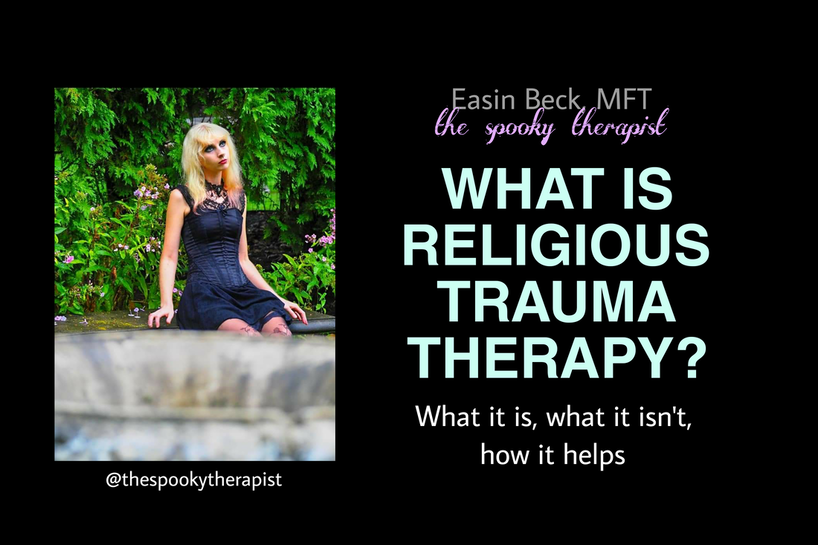 Many folks come to my website because I am a "religious trauma therapist." What does that mean? It means I work with people who are unpacking their experiences with fundamentalist, authoritarian religion. I am most experienced with the Christian Protestant evangelical homeschooling (and home-churching) movement, and I have also worked with folks from Jehovah's Witness, Mormon, Roman Catholic, and Islamic backgrounds. Being a religious trauma therapist does not mean I am anti-religion, nor does it mean the goal of therapy is for people to no longer hold religious beliefs. Many clients continue to identify with their religion in some form after therapy. My approach to religious trauma therapy is to view our time together as a space to rewrite the story of your relationship with religion, and to notice how it has impacted your relationship with yourself and others. It is a place to unpack the binary thinking that is often central to fundamentalist religion. It is about creating space to explore what does and does not fit for you, without judgment. If you were raised in a fundamentalist religion, you have had more than enough of people deciding things for you, telling you how you should and should not feel, and telling you what is right or wrong- even when it went against what you felt deep down in your core. I strive to make our space one where you feel supported in tuning into that "deep down" part of yourself. So, what is fundamentalism anyway? According to the Oxford Dictionary, Fundamentalism is "a form of a religion, especially Islam or Protestant Christianity, that upholds belief in the strict, literal interpretation of scripture." While writing this, I realized definitions are an example of fundamentalism. This is literal definition of fundamentalism, yet it does not fully capture the nuances of fundamentalism, nor does it capture what it feels like to question a fundamentalist belief system. It is also worth noting that some people are quite satisfied in a fundamentalist belief system and may never experience symptoms of religious trauma. Religious trauma symptoms tend to arise out of a two-fold event: an indoctrination into AND a subsequent breaking away from a strict set of beliefs. I tend to see clients who are in some form of the "breaking away from." Folks who do not experience the "breaking away from" are unlikely to find themselves searching for religious trauma therapy. But I digress! 4 Characteristics of a Fundamentalist Belief System This is not an exhaustive list by any means! 1. Binary Worldview. Binary thinking is not unique to fundamentalist religion. However, you may notice it is present to a greater degree in fundamentalist religion compared to other religion. Themes of "believers and non believers," "sinners/not sinners," "good/bad," "right/wrong," "men's roles/women's roles" are common. As visual, it is like everything is in stark contrast, and members are expected to adhere to these binaries. 2. "No Such Thing as a Welcome Question." Questioning is discouraged in fundamentalist belief systems, which makes sense given the binary worldview. When things are a simple yes/no or right/wrong, debating is seen as unnecessary at best and a sign of dissent at worst. When you asked questions, you may have had your status as a believer called into question in return. 3. Suspicion of outside ideas and people. In my experience, this characteristic has one of the greatest and most painful impact on religious trauma survivors. Fundamentalist families tend to isolate their children from people outside the religion. Many of my clients were homeschooled, which makes sense because many fundamentalist families turn to homeschooling to gain more control over information flow and social connections. This leaves the survivor isolated if they begin to question the fundamentalist beliefs, because the suspicion of outside ideas and people has left them surrounded by others who hold the same fundamentalist beliefs. 4. Fear-based, sometimes apocalyptic, thinking. Fundamentalist families typically hold fear-based beliefs that underlie the decision to isolate. It is common for fundamentalist beliefs to include strong apocalyptic beliefs or beliefs about hell. These fear-based beliefs can lead to intense anxiety for both the children and parents when children grow into adolescence and young adulthood, during which exploration of self and the world are key tasks of development. If you grew up in a fundamentalist belief system and struggled with transition to adulthood, you are not alone. How does religious trauma therapy help? People come to religious trauma therapy for all kinds of reasons and with all kinds of goals. Therapy has proven benefits for improving binary (polarized) thinking, anxiety (fear-based) thinking, and for improving relationships. Working with a religious trauma therapist means you have the benefit of working with someone who understands the specific issues unique to religious trauma. Put informally, the anxiety hits different when it comes from a fear of eternal punishment. Social anxiety hits different when you were taught to be suspicious of peers. Body image issues hit different when you internalized purity culture. And perhaps most importantly, learning to trust yourself is a whole different challenge when you were taught you were inherently bad and that someone else had all the answers. Everyone's therapy journey looks different. Think of these as possibilities, not guarantees, and certainly not as the "right way." Here are some things that might change for you as you heal from religious trauma:
I hope you found this article useful or relatable in some way. You deserve to heal, and you deserve to live the life you've dreamed of living. And if you're in a space where you are not quite sure what you want, but you have a sense deep down that you want to know, I want you to know support is available if you want to explore and get to know yourself. Thank you for reading. Warmly, Easin Beck, MFT
1 Comment
3/5/2024 08:58:33 am
Wow, this blog post is incredibly insightful! Thank you for sharing such valuable information. Your perspective has truly broadened my understanding on this topic.
Reply
Leave a Reply. |
AuthorI'm Easin Beck, MFT (she/they), and this is where I share my thoughts about therapy-related things! Archives
November 2022
Categories |
|
Easin M. Beck, M.S. MFT
(717) 382-6807 [email protected] 710 Wheatland St. #102, Phoenixville, PA 19460 |
Proudly powered by Weebly

 RSS Feed
RSS Feed

